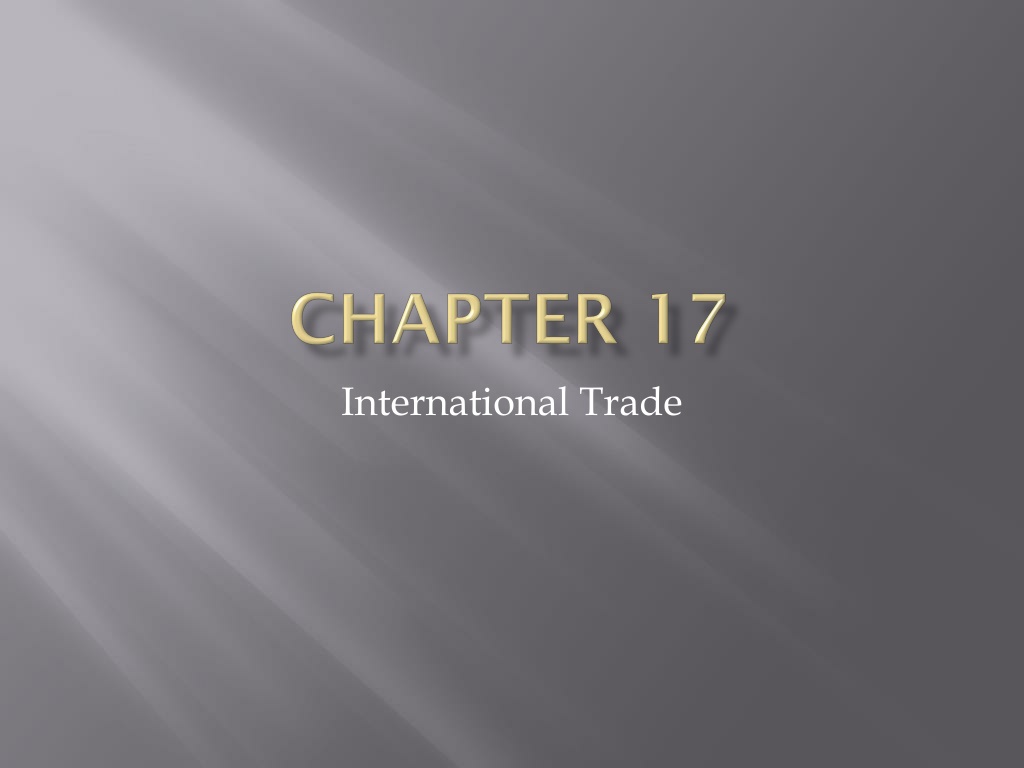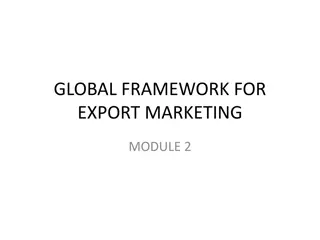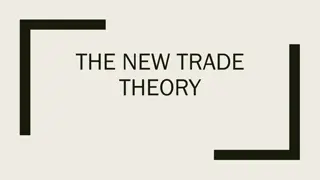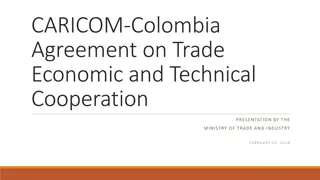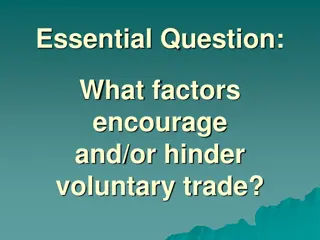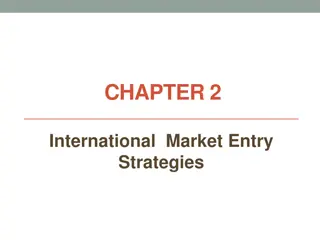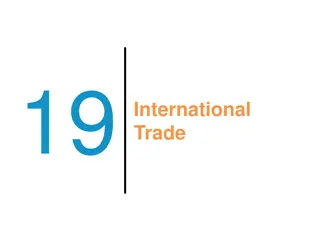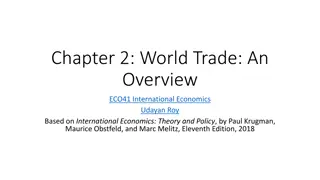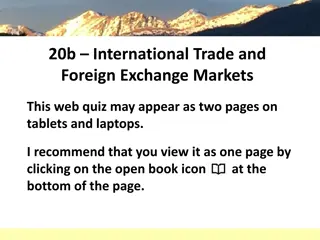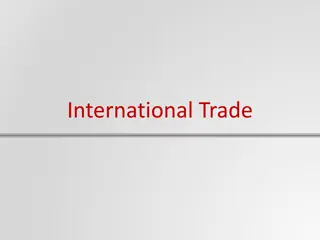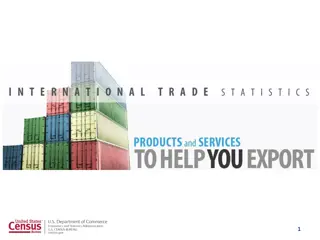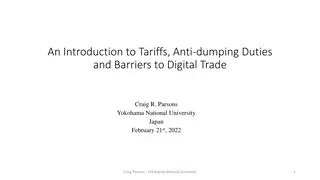Understanding International Trade and Trade Barriers
International trade plays a vital role in the global economy, allowing countries to specialize in goods and services where they have a comparative advantage. However, while specialization and trade offer various benefits, they can also lead to negative effects such as unemployment, relocation, and the need for retraining. Additionally, trade barriers like import quotas and tariffs can impact the flow of goods across borders, affecting pricing and competition in domestic markets. It's crucial to comprehend the dynamics of international trade to navigate the complexities of the modern global economy effectively.
Download Presentation

Please find below an Image/Link to download the presentation.
The content on the website is provided AS IS for your information and personal use only. It may not be sold, licensed, or shared on other websites without obtaining consent from the author. Download presentation by click this link. If you encounter any issues during the download, it is possible that the publisher has removed the file from their server.
E N D
Presentation Transcript
Every country has different types and quantities of land, labor and capital Specialization can help countries use resources more efficiently Specialization and trade benefit all nations
An absolute advantage is when a person or country can produce a good cheaper than anybody else A comparative advantage is when a person or country can produce a good at a lower opportunity cost than anybody else
The law of comparative advantage states that nations are better off producing goods and services that they have a comparative advantage in supplying
The United States is the worlds largest importer and exporter Our main trading partners are Canada, Mexico and China
Specialization can have harmful effects 1) Unemployment: people cannot adapt or find new job 2) Relocation: move to where skills meet jobs 3) Retraining: improving human capital to meet demands of specialized labor markets
A trade barrier is preventing a foreign product from entering a nation s territory/market Import quotas are limits on the amount of a good that can be imported. A tariff is a tax on imported goods, such as customs duty
Tariffs increase the price of foreign goods making domestic products more competitive Restricting imports, however, could lead to a countries trading partner imposing its own restrictions
Protectionism is the use of trade barriers to protect a nation s industries from foreign competition. This would: 1) Protect jobs- those who would be hurt by specialization 2) Protect new industries- those who are just starting out 3) National Security- companies/products essential to the defense of National Security
Has been effort to reduce barriers and increase trade internationally In 1948, General Agreement on Tariffs and Trade (GATT) reduced tariffs, expand trade world wide 1995, World Trade Organization (WTO) Comply with GATT
Appreciation- Increase in value of currency Depreciation- Decrease in value of currency The value of a foreign nation s currency in relation to your own currency is the exchange rate
Fixed Exchange Rate System- governments tries to keep value of currencies constant against one another Flexible Exchange Rate System- Exchange rate determined by supply and demand
Trade Surplus- Nation exports more than it imports Trade Deficit- Nation imports more than it exports Balance of Trade- relationship between a nation s imports and exports
The U.S. has been in a trade deficit since the 1970s Imports of foreign oil as well as Americans enjoyment of imported goods account for America s trade deficit
